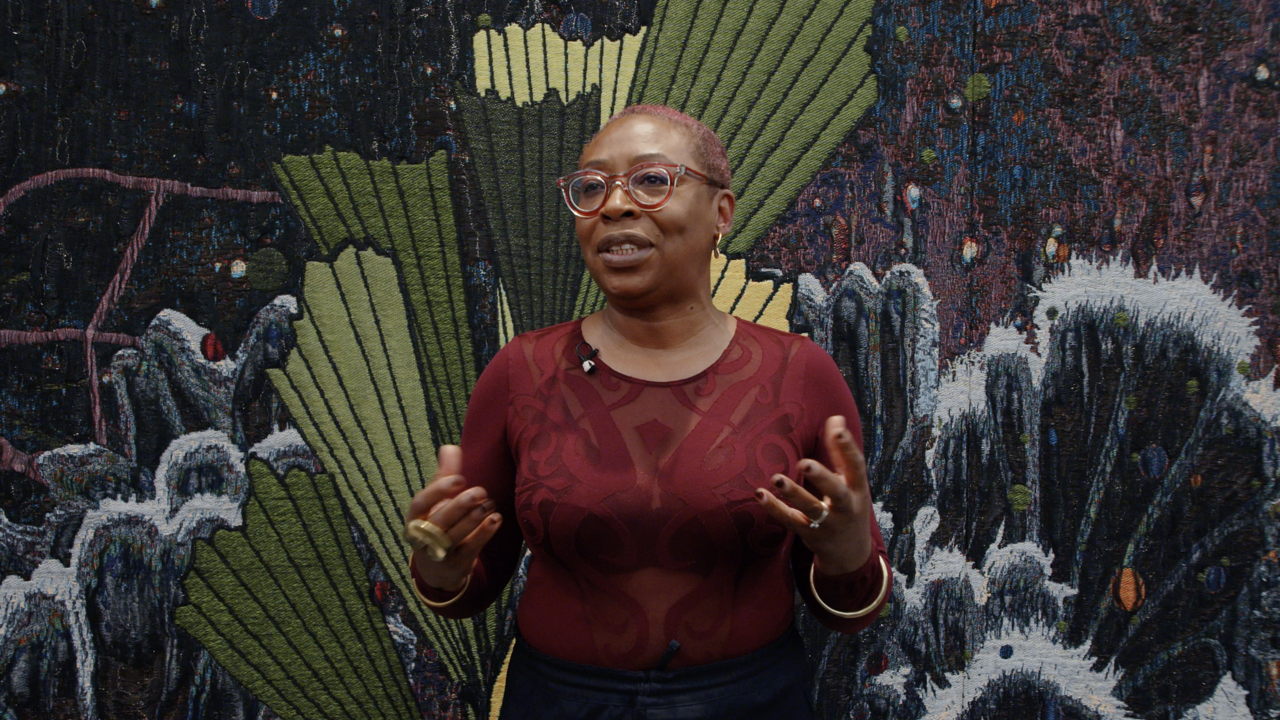'Warsaw Report: A Biennale Fights Discord with Discourse'
A report from the inaugural Biennale Warszawa
A report from the inaugural Biennale Warszawa

On 11 November 2018, the centenary of Polish Independence, the country’s president, Andrzej Duda, joined the far-right in a patriotic march. Duda is leader of the catholic, conservative and nationalist party Law and Justice, which claimed victory in the Polish parliamentary elections on Sunday evening. His action in 2018, and the surge of far-right sentiment in Poland, set the stage for the inaugural edition of Biennale Warszawa, a non-traditional biennial that kicked off this past summer and has an ongoing series of events this autumn.
The biennial’s approach, which is research-driven and includes academics and political theorists alongside activists and artists, is itself conditioned by the swing to right in Poland. Entitled ‘Let’s Organize Our Future!’, the first Warsaw biennial eschewed concentrating the project as a unique event. ‘We are responsible for how independence day will be celebrated in the future,’ stated the curatorial team member Agata Siwiak, underscoring the political duty of the biennale.

Funded by the city of Warsaw, the Biennale Warszawa is relatively insulated from the cultural policy of the Polish Ministry of Culture. With a ‘post-artistic strategy’, as put by director Pawel Wodzinski and deputy director Bartosz Frackowiak, the biennial emerged from a place where ‘culture has ceased to play an important social and political role’ in effectuating change and producing debate. ‘Our intent is to recover the public position of art, and allow art to shape a public debate’, Wodzinski and Frackowiak explained in an email.
This aim may manifest a turn ‘from participatory art to organizational art’, as suggested by theatre director and activist Georg Blokus in a lecture in Warsaw given prior to the biennial’s opening. With four interdisciplinary symposia at its core, different modes of organizing were suggested through the interfaces of artistic strategies present at the Biennale Warszawa. The Convention of Women Farmers, which took place on June 14 to 15, was the only assembly with female separatist perspectives on unionizing in an otherwise highly male-dominated reality of political struggle. Initiated by artist Marwa Arsanio – whose video Who’s Afraid of Ideology I–II (2018) was screened during the convention – the convention looked to aspects of global ecofeminism.

A four-part choreography of vocal sound pieces was performed alongside each symposium. Titled Taking Over the Stage – a Polyphonic Manifesto (2019), the work was made by Zorka Wollny in collaboration with the Warsaw Polin Choir. Wollny invited locals to join the choir, and immediately removed the conductor from the picture.
‘I searched for a form that included rather than excluded, one that gave space for imperfect voices, weak voices and disharmonies’, explains Wollny, who invited the singers to improvise and play, and to formulate their own political statements while writing one part of the libretto each. ‘I dreamt of a social forum run by the means of music,’ she explained. The Biennale Warszawa had an ambitious pedagogic programme for both the Polish disengaged youth and the local, underpaid (or on-strike) workforce of teachers – although these groups did not participate in the larger assemblies.

This is a highly discursive take on the biennial. But how will it resonate beyond 2019? Sunday’s parliamentary results will partly determine the future context of Biennale Warszawa, as the city’s political, cultural and economic autonomy is put to the test by politics. But the Biennale Warszawa forges ahead: one day prior to the elections, the one-year workshop programme ‘Social School of Anti-Capitalism’, co-organized with the Polish Social Forum, kicked off. Additionally, several symposia from the 2019 biennial will spread from Kyiv to Palermo. One such continuous project is Jonas Staal’s Transunions (2019), held in Warsaw in late June, as part of his ongoing project New Unions, a participatory project which focusses on ways of unionizing. For Staal, the uniqueness of the biennale comes from its collaborative approach to organization: ‘the biennale became an infrastructure producing infra-structures; an organization generating new organizing models’, wrote Staal in an email.
It is clear that neither institutional critique nor new institutionalism is enough in today’s Poland. As the state trembles under global economic acceleration and political instability, art has the potential of uniting disparate perspectives. But in the meantime, the outcome of this format remains unclear. Biennale Warszawa must chart its own course while facing an uncertain future.
Main image: Zorka Wollny and Chór Polin, Taking Over the Stage. A Polyphonic Manifesto, 2019, performance documentation, 2019, Biennale Warszawa; photograph: Monika Stolarska























